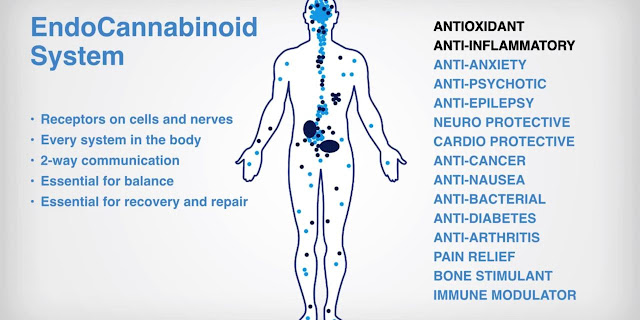Can CBD Oil Help with Brest Cancer?
Can CDB Oil help with Brest Cancer?
This was a question asked back in 2015 and believe it or not there is still controversy over the answer. But the controversy may be because big pharma may be involved.As we all know when they get involved it's all about the money baby. You mess with their money and they are going to get you back. Of course, we have to realize that there are a few players in the game on this topic.
- In one corner we have "Big Pharma" and they are in control of everything, Kinda!
- In another corner, we have you and me "the public" and we are the spenders that everyone wants.
- In another corner are the "Drug Lords" who think they control everything, Kinda!
- And in the forth corner we have the "Government" who thinks they control everything, for real.
Anyway, let's look at Brest Cancer. What is it?
According to Health Magazine
What is breast cancer?
Breast cancer is the most common cancer among women, after skin cancer. One in eight women in the United States (roughly 12%) will develop breast cancer in her lifetime. It is also the second leading cause of cancer death in women after lung cancer. Encouragingly, the death rate from breast cancer has declined a bit in recent years, perhaps due to greater awareness and screening for this type of cancer, as well as better treatments.
Breast cancer is a disease that occurs when cells in breast tissue change (or mutate) and keep reproducing. These abnormal cells usually cluster together to form a tumor. A tumor is cancerous (or malignant) when these abnormal cells invade other parts of the breast or when they spread (or metastasize) to other areas of the body through the bloodstream or lymphatic system, a network of vessels and nodes in the body that plays a role in fighting infection.
Breast cancer usually starts in the milk-producing glands of the breast (called lobules) or the tube-shaped ducts that carry milk from the lobules to the nipple. Less often, cancer begins in the fatty and fibrous connective tissue of the breast.
New cases of breast cancer are about 100 times more common in women than in men, but yes, men can get breast cancer too. Male breast cancer is rare, but anyone with breast tissue can develop breast cancer.
They say the gold is in the treatment of any disease. If the treatment is right the patient will recover. But what we have been seeing is that the patients are "sometimes" recovering. That tells me that the treatment is not correct. Below is a brief outline of the current treatment for someone with breast cancer.
Breast cancer treatment
Breast cancer treatment regimens differ widely based on the type of cancer, its stage, its sensitivity to hormones, the patient’s age and health, and other factors. Treatments for men and women are similar.
Surgery and radiation therapy are mainstays of breast cancer treatment. These are known as “local therapies” because they target the tumor without affecting the rest of the body.
With a breast-conserving surgery called a lumpectomy, only the portion of the breast containing cancer is removed. A mastectomy involves removing the entire breast and possibly some of the surrounding tissue. Lymph nodes may be removed as part of breast cancer surgery or a separate operation.
Like I said Big Pharma may have much to do with the way people are treated because I found articles that show the CBD oils have an effect on Breast cancer.
An article from ResetMe published by Luke Sumpter in 2015 states
Cannabidiol (CBD) — a non-psychoactive phytocannabinoid derived from the cannabis plant — is gaining traction in medical circles and the public eye as increasing amounts of scientific literature confirm its medicinal qualities. These include CBD’s ability to stave off inflammation, curb anxiety, depression, PTSD, psychosis, and seizures.
More astonishingly, and perhaps more urgently, CBD is proving to be a powerful anticancer agent (as recently acknowledged by the U.S. government’s National Cancer Institute). A paper published by the American Association for Cancer Research found that CBD inflicts programmed cell death (PCD) in breast cancer cells.
In the introduction, the authors note:
“Breast cancer is the second leading cause of cancer-related death in women in the United States. Conventional treatment options are often limited by toxicity or acquired resistance, and novel agents are needed. We analyzed the effects of the Cannabis sativa constituent, cannabidiol (CBD), a potent, natural compound with reported activity in breast cancer cell lines, and elucidated its effects on key neoplastic pathways.
Later on in the paper, they write:
“We found that CBD inhibited the survival of both estrogen receptor-positive and estrogen receptor-negative breast cancer cell lines and induced apoptosis in a concentration-dependent manner. Moreover, at these concentrations, CBD had little effect on MCF-10A cells, nontumorigenic, mammary cells. These data enhance the desirability of CBD as an anticancer agent because they suggest that CBD preferentially kills breast cancer cells while minimizing damage to normal breast tissue.”
If CBD continues to shine in the laboratory as research continues, it holds the potential to augment or replace conventional treatments, such as chemotherapy, which often cause significant harm to healthy cells and may catalyze undesirable and potentially devastating side effects.
The authors of the paper explain that CBD coordinates apoptosis and autophagy, resulting in the death of breast cancer cells. Apoptosis (cell suicide) plays a vital role in our bodies. It is a form of cell death that facilitates the elimination of old and unhealthy cells without the release of harmful substances. Autophagy (cell recycling) is another normal physiological process by which the body breaks down unwanted cells. It maintains our homeostasis, or balance, by aiding the degradation of old cells and the formation of new ones.
Cannabinoids, the molecular family in which CBD belongs, work by binding to certain cell receptors that make up the human endocannabinoid system. These are the CB1 and CB2 receptors. Interestingly, the paper notes that CBD induced its anticancer effects independent of the activation of these receptors, prompting the authors to state that:
“Many cannabinoids mediate their effects by binding to CB1, CB2, or the vallinoid receptor (3, 4); however, our results indicate that CBD induces PCD independent of these receptors. This is a promising area for future investigation in that identifying the receptor through which CBD mediates its anticancer effects may better inform the design of novel drugs with a mechanism of action similar to CBD.
“In this study, we showed that CBD induced both apoptosis and autophagy-induced death in breast cancer cells. PCD by apoptosis is well-documented, whereas autophagy-mediated cell death is a relatively recent discovery, and there is much to be learned about the factors that prejudice autophagy toward self-protection or self-destruction.”
Reset contacted biochemist Dennis Hill, who successfully treated his own cancer using cannabis, to find out more about CBD and how it interacts with the human endocannabinoid system:
“CBD is a metabolic sibling of THC, in that they are alike in many ways but are also different in important properties,” explains Hill via email. “First we see that CBD has no psychotropic effects and there are few CB2 receptors in the brain and peripheral nerves. There appears to be a broader therapeutic profile associated with CBD, which is listed here [See chart below].”
“One of the most important health benefits of cannabinoids is their anti-inflammatory property,” Hill continues. “In this, they are strong modulators of the inflammatory cytokine cascade. Numerous disease states arise out of chronic inflammation; such as depression, dementias including Alzheimer’s, cancer, arthritis and other autoimmune disorders…
“Cannabinoids, being immunomodulators, interrupt the cytokine inflammatory cascade so that local inflammation does not result in tissue pathology. Thus we are spared morbid or terminal illnesses. If our own endocannabinoid system can maintain metabolic homeostasis and even cure serious disease, why are we plagued by illness?
“We know that the body produces only small amounts of anandamide and 2-AG — enough to maintain the body but not enough to overcome chronic stress, illness, injury, or malnutrition. Cannabis is the only plant we know of that produces phytocannabinoids that mimic our own endocannabinoids. One of the great benefits of this mimetic medicine is that cannabinoids are essentially natural to our biology and do no harm to our tissues and systems.
“It is well known that most diseases of aging are inflammatory in origin, thus making cannabis the best anti-aging supplement we could take to avoid arthritis, dementia, hypertension, diabetes, osteoporosis, and cancer. This is our key to good health and long life.”
Well like I said in the beginning. There needs to be more research because Big Pharma is NOT letting go so easily. Even with this much proof that there are things happening with the CBD oil and Cancer. In fact, I believe that it's an uphill battle for the CBD industry to gain respect among the governing boards and pharmacology industry until "they" are all happy with their cut of the Marijuana pie. Even the drug lords who always get their cut are pushing back. Everyone wants to be in the game and they all want to be a major player. In the mean time people are suffering and dieing. People need the products and they are all still fighting over their share of the Marijuana pie.
If you are suffering from Breast Cancer - we are so sorry and we offer our prayers for your recovery. If I were you, I would be trying everything possible to make sure I got the cancer out of my body. The CBD pills or capsules would be the products the article is talking about. You can find each of them by clicking on their links.






Comments
Post a Comment